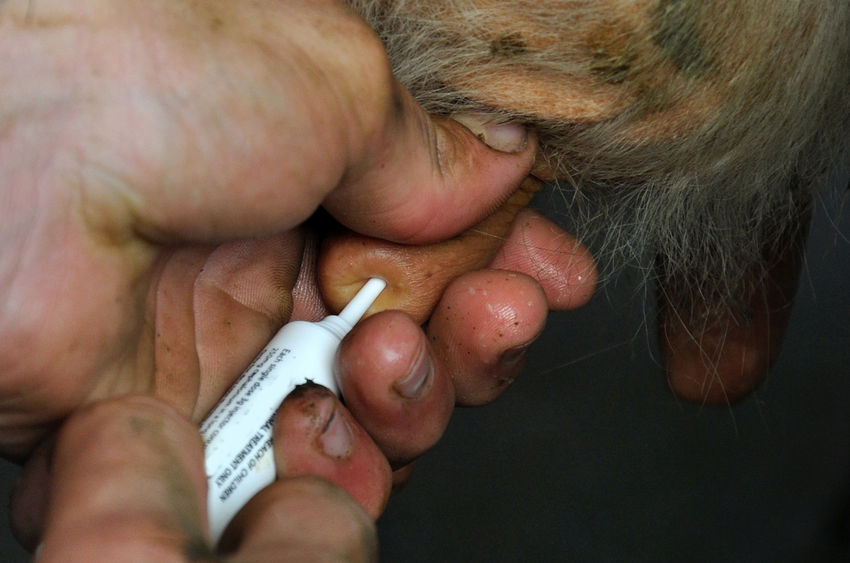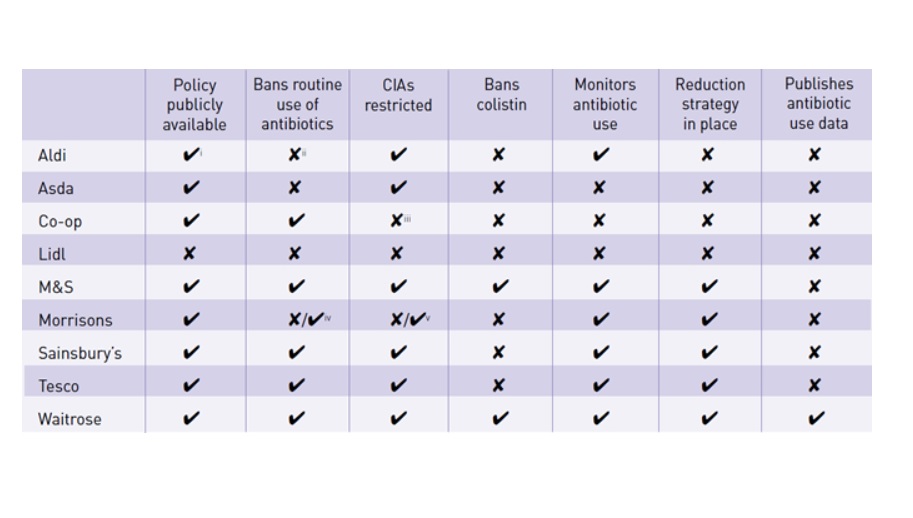
There are major differences between leading UK supermarkets antibiotic policies, the first assessment of its kind has concluded.
As British livestock farmers continue to reduce their antibiotic use, a new report from the Alliance to Save Our Antibiotics shows that supermarket policies on antibiotics vary greatly.
The assessment of supermarket policies found that five of the eight retailers - Co-op, Marks and Spencer's, Sainsbury’s, Tesco and Waitrose - included in the survey have now introduced bans on their suppliers using antibiotics for routine disease prevention.
Morrisons has a ban in some species but not in others, Aldi has some restrictions but no ban and Asda and Lidl have no restrictions other than the minimum required by law.

Waitrose has the most comprehensive antibiotics policies, including limits on the use of critically important antibiotics, a ban on the use of the last-resort human antibiotic colistin and a collection of antibiotic-use data.
The next best policies were those of M&S, Sainsbury’s and Tesco. Lidl is the only supermarket included in the survey that had no publicly available antibiotic policies.
Suzi Shingler, Campaign Manager at the Alliance, said: “These findings show that some supermarkets are finally starting to take the issue of antibiotic resistance more seriously. This is very welcome and has undoubtedly contributed to the recent reductions in use.
“Unfortunately, our survey also shows that some supermarkets have much more to do, and others have yet to take any significant action.”
'Reliance on too few'
However, the National Pig Association said further "unsubstantiated" restriction of antibiotics could lead to reliance on too few antibiotic classes.
NPA senior policy advisor Georgina Crayford said: "The NPA is concerned that further unsubstantiated restriction of antibiotics available to the agricultural sector could lead to reliance on too few antibiotic classes and may increase the rate at which resistance could occur."
The NPA said it acknowledges the relatively high historic usage of antibiotics but is highlighting the impressive efforts across the industry to cut usage since 2015 and the ‘bold and ambitious’ targets set out on October 27.
In the NPA’s response to the recent targets, chief executive Zoe Davies said: “It is true that, historically, the pig industry has been a relatively high user. There are many reasons for that, including the specific disease challenges the UK industry faces and a long period of poor prices for pork which prevented much needed reinvestment on farms.”
